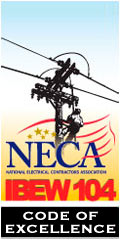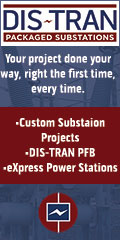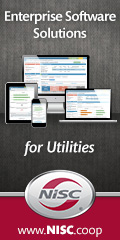
| Past Issues/Subscribe | Employment | neppa.org | Legislative Update | Advertise | March 2015 |

Establishing a Professional Standard
For years NEPPA, through its elected leaders and committees, has attempted to set or push for standards that the public power industry needs to function. We have done this by establishing a consensus on what we need from power markets, promoting positions on new generation, and suggesting best practices for billing and operations. These positions and standards have been helpful to members in educating and orienting new commissioners and staff.
The earliest concept of best practice agreements occurred in the medical, legal and accounting professions. Around 1887 the accounting profession established an association to serve members and immediately developed the CPA designation. The profession was much easier to establish standards of practice and education for. Initially, there were no audits and it was pretty much what we consider standard bookkeeping. But, it has grown into much more with audits, financial management and financial benchmarking.
After 100 years we have established associations to serve public power and to protect our interests. Only in the past 50 years did we begin to address performance and educational standards. We concentrated on operations, more specifically safety. This was because public power utilities are as unique as fingerprints. Recently we began to focus on the general or common knowledge that public power employees and leaders need to possess. For NEPPA it began with the early development of the Apprentice Program and then 23 years ago, with Pat Hyland’s first Public Utility Management Program (PUMP).
We are now at the point where we have assessed Public Power Management and will continue to monitor common minimum standards. For lineworkers, substation employees, meter technicians, and crew leaders we have established minimum educational requirements and have been providing those programs as classes. These programs qualify for certification as minimum educational requirements for employees engaged in these responsibilities. This year we will begin the process of transitioning these classes to qualify for CEUs and certification. What this means is that on the day a student graduates from one of these programs, they have met the minimum standard to perform these duties. But, it is up to them to continue to maintain their relevance and knowledge in these areas.
Using this same process for managers, commissioners and leaders, we have now established eight core competencies that are relevant for these folks, which transcend the various business models and sizes that public power utilities can come in:
In these eight core areas we can classify all of the knowledge segments or specialties that managers and commissioners are required to perform at the basic level, no matter what size or shape their utility. We will launch NEPPA –Q (what all of our certification certificates will be labeled) for managers in April. There are two ways to become certified if you are in management or on a lighting board. The first is to attend two PUMP programs. The second is by completing 16 CEUs with at least two in each of the eight core competencies. You can get these CEUs through NEPPA or any other provider. To ensure a class qualifies for a core competency, you can submit the materials before or after taking the course. In order for it to be vetted we need an outline of the content, name of instructor, instructor biography or qualifications, and a document issuing CEUs.
If taking education through NEPPA, education will be pre-vetted and labeled with the core competency that applies. For example, the new structure of PUMP will provide eight CEUs (one in each core competency) at the April program and another eight CEUs at the Fall program. This would allow those interested in completing their certification to do so in one year. In other words, individuals seeking certification who are in management or lighting board positions with a public power utility can be certified after attending two PUMP programs.
So, in addition to the great education, networking and location, now PUMP provides certification!
This is your chance to be the first in what is destined to become an industry standard in New England for public power.
Become certified and enjoy the process by attending PUMP at the Water’s Edge Resort in Westbrook, Conn., April 29-May 1. Registration is open so make sure to sign up now as the program is limited to 20 attendees.
 For more information or to register please go here!
|






